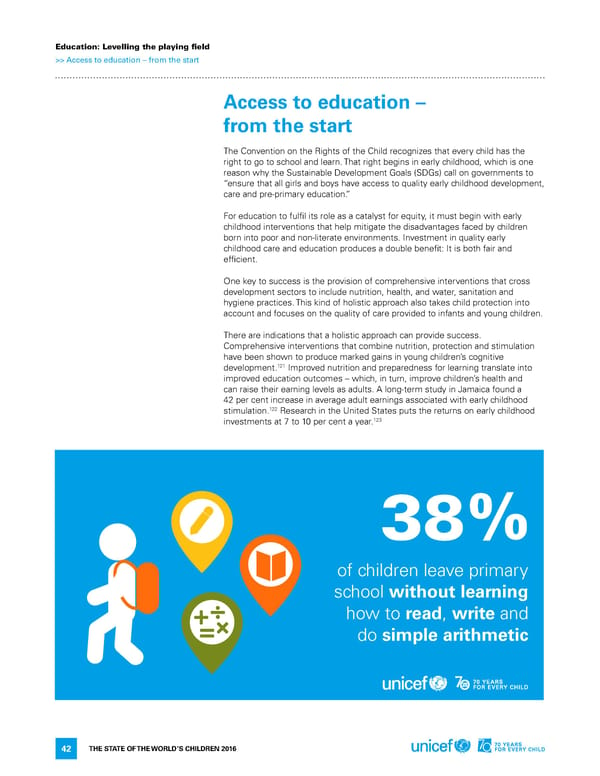Education: Levelling the playing field >> Access to education – from the start Access to education – from the start The Convention on the rights of the Child recognizes that every child has the right to go to school and learn. That right begins in early childhood, which is one reason why the Sustainable development Goals (SdGs) call on governments to “ensure that all girls and boys have access to quality early childhood development, care and pre-primary education.” for education to fulfil its role as a catalyst for equity, it must begin with early childhood interventions that help mitigate the disadvantages faced by children born into poor and non-literate environments. investment in quality early childhood care and education produces a double benefit: it is both fair and efficient. one key to success is the provision of comprehensive interventions that cross development sectors to include nutrition, health, and water, sanitation and hygiene practices. This kind of holistic approach also takes child protection into account and focuses on the quality of care provided to infants and young children. There are indications that a holistic approach can provide success. Comprehensive interventions that combine nutrition, protection and stimulation have been shown to produce marked gains in young children’s cognitive 121 development. improved nutrition and preparedness for learning translate into improved education outcomes – which, in turn, improve children’s health and can raise their earning levels as adults. a long-term study in Jamaica found a 42 per cent increase in average adult earnings associated with early childhood 122 stimulation. research in the United States puts the returns on early childhood 123 investments at 7 to 10 per cent a year. 38% of children leave primary school without learning how to read, write and do simple arithmetic The STaTe of The World’S Children 2016 42
 70 Years for Every Child Page 57 Page 59
70 Years for Every Child Page 57 Page 59